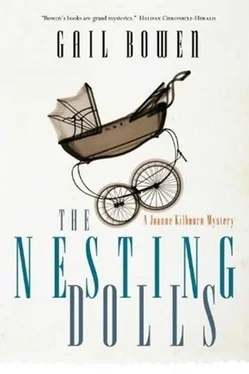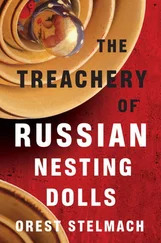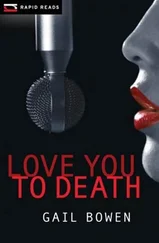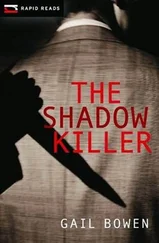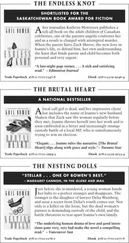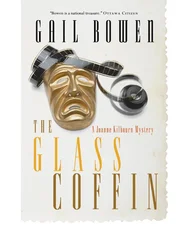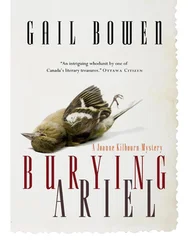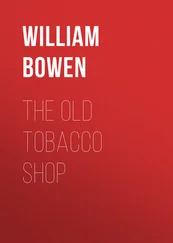My nerves tightened. “There’s that retrospective of her work coming up,” I said. “I imagine the interest is pretty intense.”
Taylor’s gaze was steady. “Do you know what Sally was doing when she was my age?”
It was as if by telling Zack that morning about Izaak Levin and Sally’s relationship I’d opened Pandora’s box. “I know some of it,” I said carefully.
Taylor dangled the ornament by the thin red ribbon that would loop it to the tree branch. “She was in New York City,” my daughter said. “Experiencing life.”
“You’re experiencing life,” I said.
Taylor’s laugh was short and derisive. “Not the way she was. One of the people on the forum said Sally was… sexually active. She was my age, and she was sexually active.” Taylor’s dark eyes were accusing. “Did you know that?”
“I knew.”
“But you never told me.”
“No.”
“Were you afraid that if I knew what my mother… what Sally did… I’d do it too?”
I pulled a chair close to her and picked up last year’s ornament. Fittingly, it was an antique frame. In her photo, Taylor’s glossy hair was still long and her smile was without shadow and a mile wide – a reminder that in a girl’s rich and turbulent life, a year can be an eternity.
“Taylor, we’ve talked about this. Sex has consequences.”
“To the way I feel about myself,” she said.
“And to the way the boy feels about himself.”
The mixture of resignation and defiance in her voice was pure Sally. “Being with me isn’t going to make any boy feel worse about himself,” Taylor said. She slammed the ornament on the table. “And for your information, this isn’t about boys. This is about my work. There’s nothing there.” Taylor drew a breath. “On the forum, the man who’s devoted his life to Sally Love says that artists have to live large to paint. He says that even when she was fourteen, Sally knew that she had to experience life to be a great artist.”
“And this man equates experiencing life with having sex?”
“Sally did,” Taylor said coldly. “If you’d seen that self-portrait she did when she was my age, you’d understand.”
“I have seen it, Taylor. I saw it in the living room of the man who owned it.”
Taylor’s eyes were brimming. “Then you know how amazing it is.”
“I do,” I said. “I also know that by the time your mother was fourteen, she’d suffered more than any child should ever suffer.”
“Because her father died and her mother didn’t have a good relationship with her,” Taylor said. “But she had Izaak Levin. You told me that when there was no one else, he took care of Sally. He gave her the chance to travel and the freedom to paint what she saw.”
“That’s true,” I said. “But there was more. Taylor, Izaak used your mother. He used her beauty, and he used her talent.”
“Whatever he did, it worked.” Taylor’s voice quivered, but her message was unequivocal. “When she was my age, Sally was making great art, and that’s worth everything.”
I picked up the ornament Taylor had slammed on the table. It was impossible to take a bad picture of Taylor, and this one wasn’t unflattering, but it was revealing. In it, for the first time since she’d come to me, there was uncertainty in her eyes and her smile was guarded. I stared at the photograph for a second too long, and Taylor noticed. “Do you think I look geeky?”
“You don’t look geeky,” I said. “You look as if you have a lot on your mind, which, clearly, you do. Taylor, I can’t even begin to imagine what it’s like to make the kind of art that you and Sally make, but I do know that the life experience you bring to your work doesn’t have to be harsh. Angela Cheng says that when she plays certain pieces, she thinks about the way the light shines on her child’s hair.”
“Angela Cheng is a pianist, not a painter.”
“But she’s found a way to live that feeds her art. If you’re lucky and if you make the right choices, that can happen to you.”
Taylor leapt out of her chair and bounded onto my knee. The leap was as unexpected as it was sweet. “Everything’s changing,” she said.
“I know,” I said. “But you’re going to be fine. Taylor, you are fine.”
Taylor was as tall as I was. Sitting on my knee was no longer easy for her, but we held on, united by our awareness that while there were battles ahead, we had been granted a reprieve. As we watched the snow fall, it seemed we breathed in unison.
Zack’s inability to do any but the most rudimentary jigsaw puzzle was a running joke between him and our granddaughters. That afternoon when Mieka and the girls arrived to help get our family dinner ready, both girls had puzzles jammed in their backpacks. Taylor was at the choral concert; Mieka and I had cooking to do; so, by process of elimination, Zack was on puzzle duty.
After the girls threw off their coats and boots, they descended on him. “The one I brought is so easy,” Lena cooed. “It’s a caterpillar, and even the littlest kids in junior kindergarten are bored with it.” “Mine’s a piano,” Madeleine said. “The box says it’s for ages five to eight, but you play the piano, Granddad, and there’s a picture, so you should be able to do it. If you get stuck, I’ll help you.”
Zack wheeled his chair close to the table. “Thanks for the offer, Maddy,” he said. “But a man’s got to do what a man’s got to do. I’m going to tackle these puzzles all by myself.”
Maddy looked at her mother and me and rolled her eyes. Lena opened the caterpillar box and shook out the puzzle pieces. Zack groaned when he saw them. “There must be a hundred pieces there,” he said.
“There are ten,” Lena corrected, “and they’re big.”
Mieka and I went into the kitchen to put the finishing touches on what she called our duelling chilies: mine, con carne; hers, vegetarian. We stirred, grated, chopped, and listened to Zack trumpet his success with the puzzle as the girls chortled. When the caterpillar was complete, my husband called me in. “Ms. Shreve, I’d like a picture of this.” The girls posed with him, and I snapped. “You’re a madman,” I said.
“Victors always look a little crazed,” Zack said, then he slid the completed caterpillar into its box and turned to the girls. “We are now cooking with gas. Bring on the piano.”
There had been plenty of groans and giggles from the dining room by the time Peter, our older son, and his girlfriend, Dacia, arrived. They said hello to Zack and the girls, then carried the plastic storage bins of lights and tree ornaments from the garage through to the family room. They popped off the containers’ lids and began unwinding the lights from their newspaper cones, unwrapping the ornaments, and setting everything out on a trestle table by the tree. Mieka and I had just put Zack out of his agony by announcing that we were setting the dining room table so he had to either move his puzzle or scrap it, when Taylor and Isobel came bounding in, back from the concert. They were beaming, and the source of their pleasure was apparent. Delia and Noah were behind them, and Noah was holding the baby.
“The girls thought you’d like to see Jacob again,” Noah said.
“You bet we would,” I said. “May I take your coats?”
Noah and Delia exchanged glances. “I think we’ll make this a quick visit,” Delia said. “We should get Jacob home. The sooner he knows where he belongs, the better.”
Noah unzipped Jacob’s snowsuit, took off his toque, and carried him around so Jacob could inspect us as we inspected him. Isobel took Jacob’s small hand in hers and followed her father. “He’s a handsome baby, isn’t he?” she said.
Читать дальше
